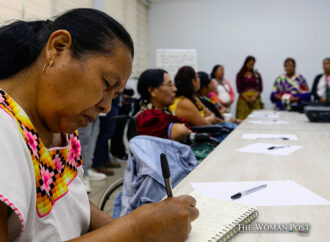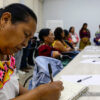These are some of the public policies that should be adopted in the region to protect mothers, who have historically performed care work.
These are some of the public policies that should be adopted in the region to protect mothers, who have historically performed care work.
Mothers play a primary role of care in the lives of the vast majority of human beings; however, the public policies that protect them are few, at least in Latin America. This is one of the regions with the highest levels of machismo, gender violence, and stigmatization of women. Likewise, mothers are considered the primary caregivers in the home, a task for which they are not compensated. The latter is very important, because the fact that maternity is not recognized as a job worthy of being compensated implies that the women who must exercise it do not have the possibility of accessing economic freedom, and this, in turn, away from the privileges enjoyed by anyone with financial capacity.
On the other hand, we find working mothers, who must fulfill their role as caregivers and also respond to a job with the same hours and duties as any other worker who does not have the responsibility of care. This not only implies more burden, but there is also discrimination on the part of the business sector towards women who want to be mothers, or who already are.
Also read: Dangers of physical punishment in children
Even though the position and perspective that people have regarding this issue have changed radically in the last decades, thanks to the efforts of women to demand their basic rights, we still find ourselves in a crude panorama. Public policies do not cover everything that maternity implies and those that already exist are not fully applied successfully due to the strong presence of gender violence in the region. Let's take a deeper look at some of the public policies that should be adopted in the region to protect mothers.
Affordable, Quality Childcare
Latin America lags when it comes to childcare services. According to UNICEF, 40% of the countries in the southern hemisphere do not have legislation in which the State offers these services, nor are employers required to do so. This implies that the possibilities for mothers to access a job are limited since not all of them have the economic capacity to pay for a nursery in which quality is ensured. Consequently, boys and girls can be affected and even receive violence.
Latin American countries must ensure that they not only give mothers the chance to work but also give them peace of mind that their children will be in good hands at little or no cost. But this does not only apply to daycare but also to home care. That is, the affordability of universal childcare should be targeted.
The vital minimum wage for housewives mothers
As we already mentioned, the care of the home is historically in charge of the mothers; however, it is not considered a job that should be fairly paid. This leads to gender violence and the dehumanization of mothers, who must carry out their work merely out of love, without taking into account the efforts and problems they must overcome. Latin American governments must understand maternity as a job that is paid. The minimum living wage for stay-at-home mothers can foster financial freedom for stay-at-home mothers and stronger economic stability for the family.
Paid parental leave for the care of young children
Although there are already public policies focused on paid maternity and paternity leave, this takes into account only newborn babies, and is applied to formal jobs, and there are countries in which parents only have 1 day of paid leave. These policies need to be expanded to ensure that younger children can bond with their parents and meet nutritional and developmental needs.
Likewise, the governments of the region must ensure that both the formal and informal sectors provide paid maternity and paternity leave that is long enough to allow parents to care for their youngest children with dignity.
Reproductive rights at your fingertips
In Latin America the fertility rate in poor families is alarming. Reproductive rights, which range from well-informed sexual education to the right to abortion or access to sterilization surgeries, are still not achieved in the region. Governments must ensure that these are within reach and that mothers are well informed about them to make decisions that affect their health, economy, and quality of life.
























Leave a Comment
Your email address will not be published. Required fields are marked with *